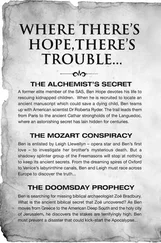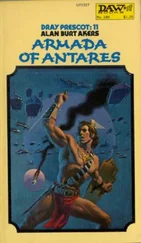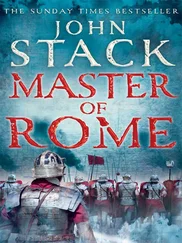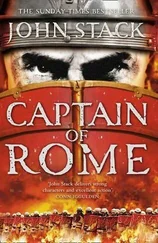After some time, Catherine sensed a change in the direction of the conversation. She left the room to supervise dinner as William began to question Robert on the recent attack on the Spanish mainland. They had heard from Tobias Miller, Robert’s master from the Spirit , that Robert had sailed with Drake after the fleet had departed and William knew only that John Hawkins had ordered the transfer.
William had felt a profound sense of pride when he had heard the news. Spain was England’s greatest threat and to have his son, albeit adopted, in the vanguard against such a foe brought great honour to the family. It was also a testament to his success in imbuing Robert with his beliefs, a task William had begun from the moment he had taken in his sister’s twelve year old only son.
Unswerving loyalty to faith, crown and country were at the core of William’s being. He had been taught such principles by his father, as had his father before him, and whereas William had ensured his own children grew up strong in such beliefs, his tuition of Robert had always been hindered by the fact that the boy’s first twelve years had been spent under the influence of a father who had rebelled against the monarchy.
To subvert the Crown was to place the entire country in jeopardy and William had abhorred this treason. In the time of William’s great-grandfather the nobility had been torn apart by civil war, and out of the maelstrom the House of Tudor had emerged, uniting the factions. It was England’s unity, under a strong monarch, that kept her free. Internal divisions would render her easy prey for the expanding dominant powers on the continent.
Robert outlined the events of the previous ten weeks, drawing William’s concern for his injury when he spoke of Cadiz, and his admiration at Robert’s elevation to the rank of Captain. Robert spoke only briefly on the sack of Sagres, not wanting to be drawn into a conversation that would reignite his guilt. The weeks of skirmishing off Cape Saint Vincent prompted many questions from William and Robert smiled as he savoured the answers.
‘Then it is believed that Spain is thwarted?’ William asked as Robert concluded.
‘At least for this season, maybe even the next. The supplies we captured or destroyed will not easily be replaced.’
‘Where is Drake now?’
‘I believe he travelled to London. The Sao Phelipe was an enormous prize and I warrant Drake wants to present the Queen’s share to her in person.’
William nodded and for a moment was silent.
‘God protect Drake,’ he said solemnly. ‘Despite the error of his beliefs he is one of our greatest hopes of keeping the Spanish horde at bay.’
Robert murmured an agreement. He was glad the Spanish had been defeated, yet for a brief moment, when his father had spoken of Drake’s misguided beliefs, Robert had pictured the crucifix on the chest of the Spanish commander of the Halcón .
‘They share our faith,’ he said simply, looking to his father, hoping for guidance.
‘They do, Robert,’ William replied, ‘but the return of England to the true faith will not be accomplished through Spanish ambition. I trust you know that.’
Robert nodded imperceptibly.
‘Philip may trumpet the Catholic cause but I suspect his pride commands an equal share of his motives,’ William continued. ‘He will not invade England to place a Catholic monarch on the throne and then simply withdraw his army.’
‘But with the death of Mary Stuart surely all hope is gone that an English Catholic monarch will succeed to the throne and we will witness a day when we are free to practise our faith, when I can reclaim …’
Robert stopped short, suddenly realizing that he had unconsciously linked a successful Spanish invasion with the return of his title and family honour.
William sat forward, an angry rebuke rushing to his lips, but he held his tongue. From experience he knew that the balance of loyalties between faith, crown and country was difficult to maintain, particularly at time of national crisis. William had known two such occasions when adherence to one or more tenets of his beliefs had threatened another, almost pushing the balance to the tipping point of collapse.
When the Catholic Mary Tudor had been on the throne she had married Philip of Spain. Her decision had threatened to rob England of its independence by making it part of the Hapsburg Empire, pitting William’s loyalty to faith and crown against his country. Similarly the excommunication of Elizabeth by Pope Pius V had set his faith in opposition to his loyalty to his monarch. On each occasion however William had stuck doggedly to his principles, allowing him to forge a resolution that satisfied both his conscience and his honour.
Now his adopted son was facing a similar challenge in the guise of Spain’s threat to invade. The loyalties that William had taught him were being set in opposition. However, William considered steadfast adherence to one’s beliefs as a mark of courage and fortitude, and he was confident that Robert would eventually find his own resolution.
‘God will bring England back into the Catholic fold in His own good time,’ William said tolerantly. ‘Believe in that, Robert, and until that day give Elizabeth every ounce of your loyalty.’
‘I will,’ Robert replied, troubled by the fact that for a moment he had seen no other way for his family name to be restored than with a successful Spanish conquest.
Without his name he would always be another man’s son. While William Varian had cared for him like one of his own, Robert could still remember the shame he had felt when William had let it be known to the townsfolk of Brixham that Robert’s father had died of the plague. William had refused to reveal Robert’s title and lineage, and at twelve years old Robert had believed this secrecy was motivated by jealousy of his brother-in-law’s superior ancestry. He had hated him for it. Only as he grew older did he understand that the subterfuge was for his own safety, learning by degrees of his father’s part in the Northern Rebellion and his subsequent self-exile into obscurity and death.
It was a past that Robert had always struggled to accept and he desperately regretted the fact that he had never been given an opportunity to confront his father. Robert knew much about the Northern Rebellion and how the nobles had planned to depose Elizabeth in favour of Mary Stuart, but he had always wanted to know why his father had personally taken part, why he had risked everything, his name, his title and the birthright of his only son on a venture that was, at its heart, an act of treason.
‘There is much weighing on your mind,’ William said, reading Robert’s expression. ‘You should speak with Father Blackthorne.’
‘He is here?’
‘Yes,’ William said with a smile. ‘In the chapel. Go and see him before we eat.’
Robert rose and left the room. As he climbed the stairs his pace quickened at the prospect of seeing his old friend. He reached the landing and walked down the corridor leading to the back of the house. To his right were two widely spaced doors and Robert paused between them. The entrance to the chapel was invisible in the wood panelling that ran the length of the wall and Robert took a moment to trace his hand over the joints, searching for the small but distinctive knot that marked the hidden doorway. He found it, but did not enter immediately, suddenly remembering why he had been anxious all these weeks to see the priest. The full measure of his guilt swiftly returned to him. He took a deep breath and pushed firmly on the knot. The lock released with an audible click and the panel hinged inwards. Robert ducked his head to enter.
The chapel had been constructed between two existing rooms, using floor space from both. It was cramped, barely eight feet by ten. Father Blackthorne was kneeling before the altar and he spun around at the sound of the door. He smiled at the sight of Robert and rose to greet him.
Читать дальше
Конец ознакомительного отрывка
Купить книгу











